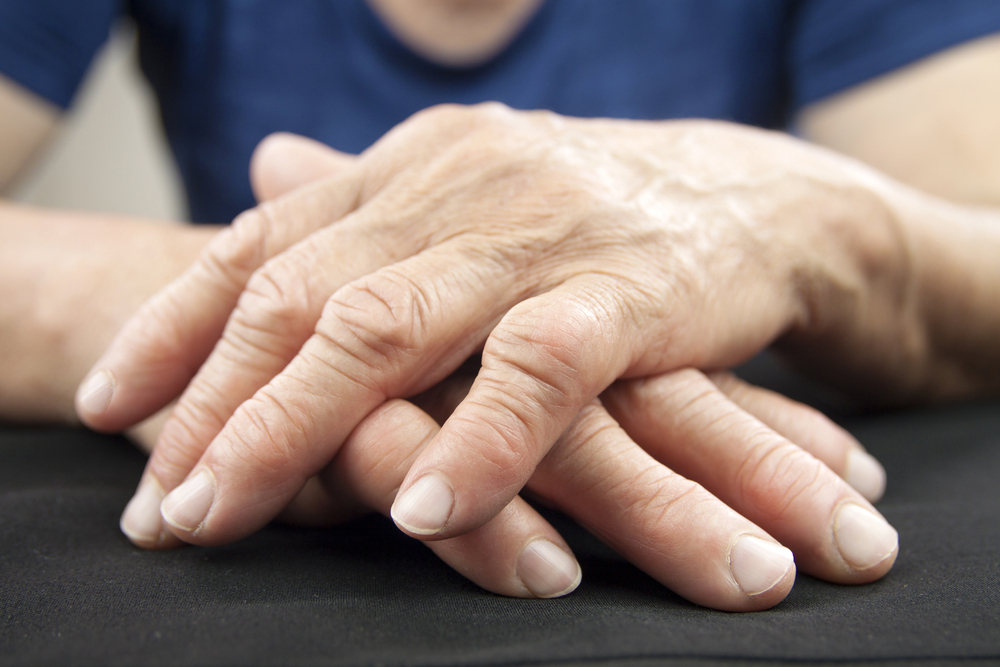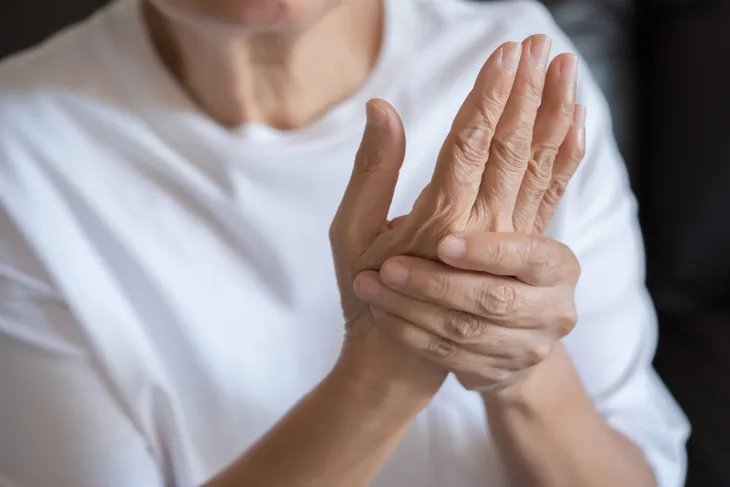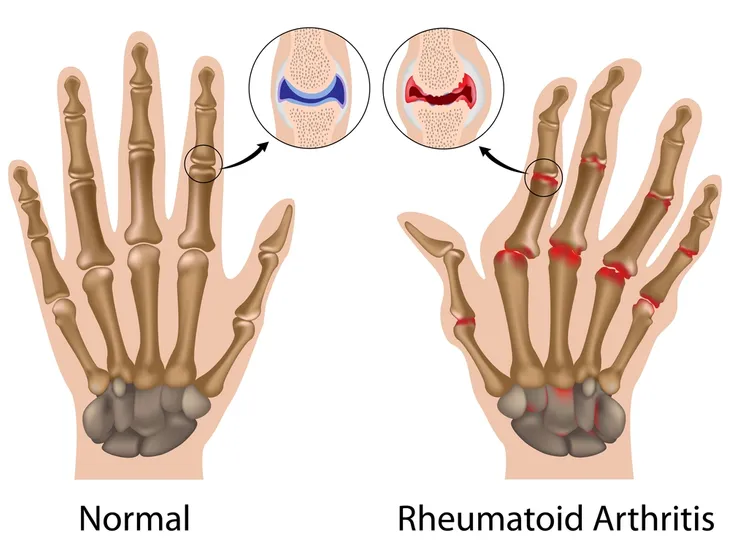Rheumatoid arthritis (RA) is a debilitating disease. It causes joints and muscles to be inflamed, resulting in a multitude of symptoms. Many people who suffer from RA just attribute it to “old age pain,” but it’s more than just joint pain. RA can damage body systems, including the eyes, lungs, heart, and blood vessels. In severe cases it can even lead to bone erosion and joint deformity.
They don’t know that there are many different medications and treatments for the disease, or even natural remedies that can help provide some relief.
Twelve of the most common symptoms of RA are…
1. Stiffness
One of the best known symptoms of RA is “morning stiffness.” This occurs when the joints and muscles are stiffest in the morning, sometimes to the point where it can be impossible to walk or get out of bed. It may take hours for individuals with RA before they can be able to move about comfortably.
2. Swelling
For people with RA, swelling can occur in the affected joints. The signs of this are fluid retention and swollen muscles. The skin will feel tight, like a balloon. The fluid could be the joint itself or in the muscles around the joint.
3. Pain
Pain is one of the most notable symptoms of rheumatoid arthritis. The inflammation that occurs with RA can make the joint very sensitive. Over time, the pain and inflammation can cause permanent damage, which in turn leads to more pain.
4. Redness
Inflamed joints can cause redness in the skin over the joints. This is caused by increased blood flow to the affected site. The sore joints will also have a warm feeling. Applying ice to the joints when they exhibit these symptoms is a good idea.
5. Fatigue
This is a general symptom of RA. When a person is suffering from RA, they spend their days trying to be pain-free. This can be both physically and mentally exhausting.
6. Malaise
Malaise, or the general feeling of being “sick” or “ill”, is a symptom of RA that can come with inflammation. The body is overreacting to pain, leaving a general feeling of being “unwell.”
7. Loss of Appetite
Loss of appetite and weight loss are symptoms of RA.When a person is in constant pain, they can become nauseous and lose their appetite. It is important to maintain proper nutrition so that you are as healthy as possible.
8. Muscle Aches
Overcompensating because of sore joints can cause muscle aches and pain. The muscles around the joints can become strained and sore. The muscles on the opposite side of the body can be overworked and get sore as well.
9. Rheumatoid Nodules
Rheumatoid nodules are small, painful bumps under the skin around the affected joints. They are firm to the touch and can range in size from the size of a pea to the size of an orange. They can be found around bones, but also across the entire body.
10. Shortness of Breath
The lungs can also be involved in RA. It can cause damage to the lungs themselves or to the lining around the lungs. There may be no symptoms, but you could experience shortness of breath.
11. Inflammation Around The Heart
Like the lungs, inflammation can occur around other organs. This can be deadly when it happens around the heart. Again, there are no physical symptoms for this effect. People with RA have a greater risk of clogged arteries, which could lead to a heart attack.
12. Dry, Red Eyes and Sore Throat
In less than 5-percent of RA sufferers, dry eyes can be a symptom. This presents itself through the eyes being red, itchy, and/or dry. It can also affect the cricoarytenoid joint in the throat, which can lead to a sore throat and hoarseness.















